Big FinTech is here!
The future is likely to see ‘Big FinTech’ replace ‘Big Tech’. But this time around, India can be part of the story from the ground up. India has been ahead of the fintech game on the technology, regulatory and consumer fronts.
 Courtesy: Shutterstock
Courtesy: Shutterstock
The future is likely to see ‘Big FinTech’ replace ‘Big Tech’. But this time around, India can be part of the story from the ground up. India has been ahead of the fintech game on the technology, regulatory and consumer fronts.
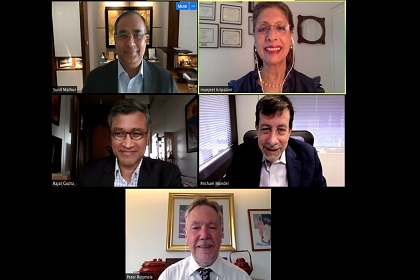 Courtesy: Gateway House
Courtesy: Gateway House
Digital Manufacturing in India can bring in a new age globalisation of manufacturing, and developing resilient, transparent and trusted supply chains. With the help of MNCs, start-ups and government in accelerating digital adoption, and India must become part of the emerging global trading system, using the COVID-19 pandemic to accelerate digitisation.
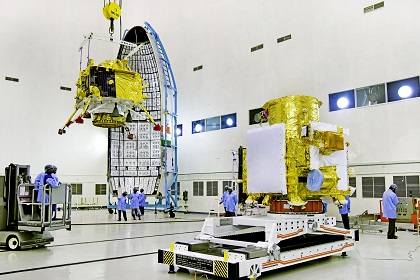 Courtesy: ISRO
Courtesy: ISRO
With the space sector being divided into astro-political blocs, India can't afford to stay non-aligned. A recent treaty between China and Russia makes it plain for India that leaving space exploration to a few science aficionados can be dangerous. India needs a national space exploration strategy with tangible economic and meta-strategic goals in sight.
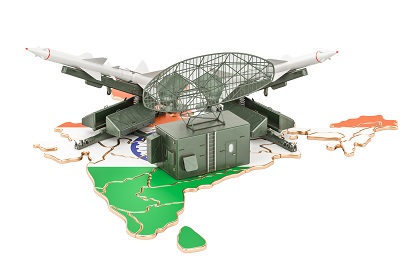 Courtesy: Shutterstock
Courtesy: Shutterstock
As new technological advances take place every day, India must keep up. While the U.S. is still a front-runner in defence technologies, China and Russia are catching up quickly. In order to counter this, India can insert itself into the pre-existing bilateral co-operation between the U.S. and Israel. Sameer Patil, Fellow, International Security Studies Programme tells us how.
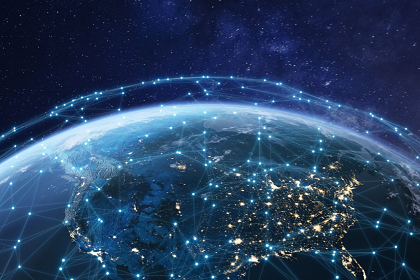 Courtesy: World Economic Forum
Courtesy: World Economic Forum
In March 2021, the World Economic Forum (WEF) announced the addition of 15 manufacturing facilities to the prestigious Global Lighthouse Network. Two Indian companies were on the list – the Tata Steel facility in Jamshedpur, and the ReNew Power facility in Hubli. This is twice the number of Indian companies on the list last year. Many more facilities will likely be added to the WEF list, as several prepare to graduate their manufacturing businesses to keep up with Industry 4.0.
 Courtesy: Shutterstock
Courtesy: Shutterstock
Individuals now generate copious amounts of personal data everyday – both online and offline. Devices and infrastructure extract data, which can be shared instantly across borders with diverse entities - without consent. It is imperative that countries come together to create regulations to protect individuals who are unable to control how their data is shared and processed. A model already exists in the Paris Climate Agreement.
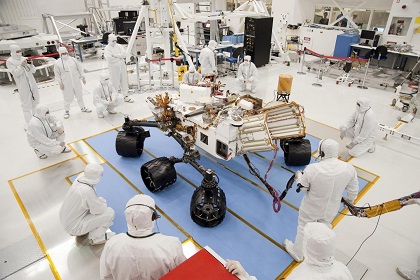 Courtesy: NASA/JPL-Caltech
Courtesy: NASA/JPL-Caltech
With an increasing human and robotic footprint in the solar system, there is a need to develop robust regulatory mechanisms to prevent the “forward” and “backward” biochemical contamination of these unexplored celestial bodies.
 Courtesy: Shutterstock
Courtesy: Shutterstock
Big Tech wields considerable influence over commerce, speech, media, and politics. Mergers and acquisitions have been key to their burgeoning growth. Now it is clear that their power is buttressed by anti-competitive and predatory practices. Governments across the world are moving to redress this through regulation, but the task is complex.
 Courtesy: Wikimedia Commons
Courtesy: Wikimedia Commons
The Space20 is the newest sub-forum of the G20 initiated by Saudi Arabia, with the support of the United Nations Office of Outer Space Affairs. India, on its way to the G20 presidency in 2022, should set a comprehensive Space20 agenda for the democratization of outer space, whereby it can share its space growth story with the developing world and achieve its goal to become a global knowledge epicenter.
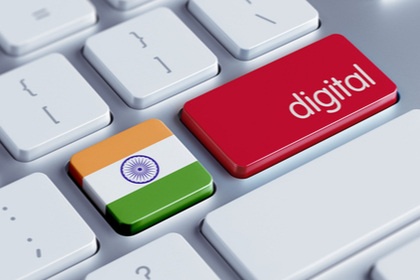 Courtesy: Shuterstock
Courtesy: Shuterstock
The depth and complexity of India’s digital citizenry and ecosystem puts it in a unique position to impact global rules on digital governance. An opportunity to assert its influence is coming up with India’s presidency of the G20 in 2022. Work on this agenda must begin now.